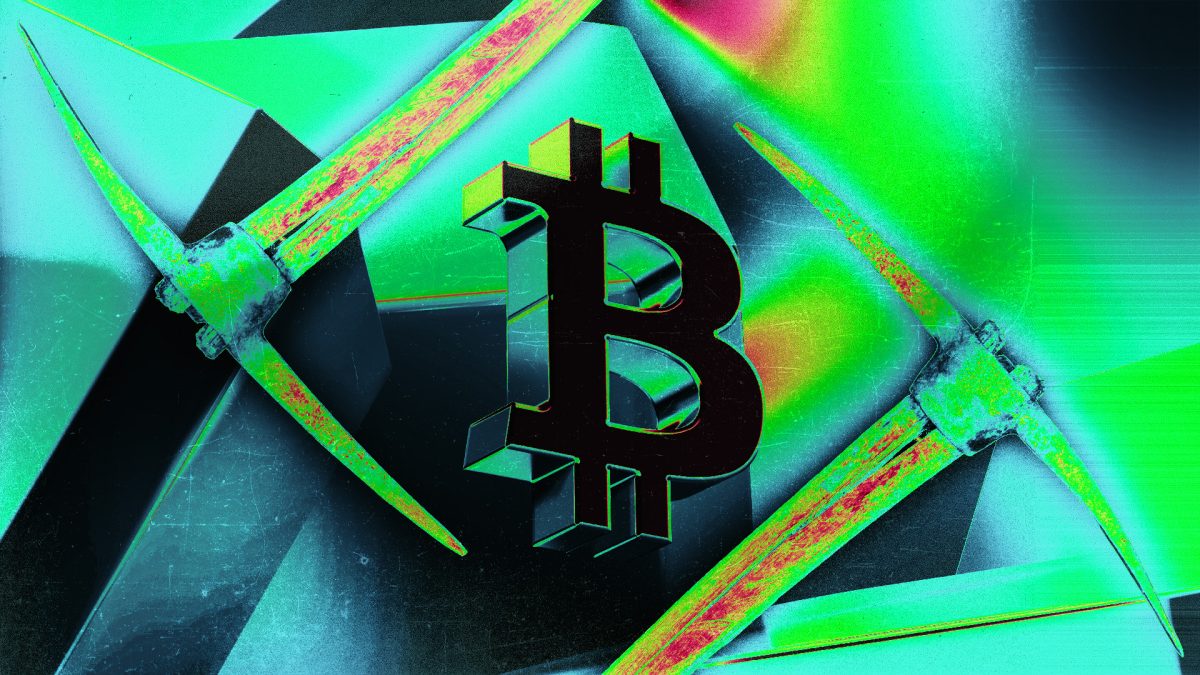SNES emulator inscribed onto Bitcoin by Ninjalerts

Quick Take
- NFT analytics platform Ninjalerts has inscribed a Super Nintendo Entertainment System emulator onto the Bitcoin network.
- The project aims to enable users to play games in their browser across Ordinals explorers and marketplaces while helping to preserve classic video games.

Blending 1990s gaming nostalgia with blockchain technology, NFT analytics platform Ninjalerts has inscribed a Super Nintendo Entertainment System emulator onto the Bitcoin network — enabling users to play games in their browser across Ordinals explorers and marketplaces.
The move is part of the “Pizza Ninjas” profile picture NFT project. Ninjalerts also provides tools and guidance for uploading permanent and functional video games onto Bitcoin — explaining how to store Read-Only Memory game files on Bitcoin in an encrypted and password-protected format, according to a statement.
Ninjalerts said the initiative was inspired by last year’s commercial availability study from the Video Game History Foundation, in partnership with the Software Preservation Network — finding that 87% of classic video games released in the United States are “critically endangered.”
Regarding compliance with copyright laws, Ninjalerts said, “Under U.S. Copyright Law, particularly Section 117 of the Copyright Act, owners of legal copies of computer programs (including video games) are allowed to make a backup copy for archival purposes.”
“Ninjalerts recommends users find legal methods to utilize these tools for video game preservation, such as making personal backups of owned games, and avoid any activities that could be considered copyright infringement,” it added.
Nintendo did not respond to a request for comment from The Block.
How the Bitcoin SNES emulator works
The Pizza Ninjas project is set to launch with an embedded SNES emulator in each Ninja profile picture NFT, allowing users to play games in their browser across any Ordinals explorer or marketplace by loading ROMs from their computer or existing inscriptions on Bitcoin.
As the emulator files exist independently on Bitcoin, they also have a broader application beyond the Pizza Ninjas project, Ninjalerts said — combining advanced capabilities of Bitcoin Ordinals' architecture with technologies like WebAssembly and JavaScript.
A demo of the Super Nintendo emulator can be found on YouTube.
However, users hoping to upload more advanced games to Bitcoin will probably be left disappointed. “A 16-bit system like SNES is likely the largest we can practically go (from a file size perspective) for putting old video games and software emulation fully on Bitcoin,” Ninjalerts CEO Trevor Owens said.
The “maximum inscription size per transaction is around 400kb without going to a miner,” Owens told The Block. “Most SNES games are 1MB to 4MB, which can get below 400kb or under 1 MB with the right compression. Game Boy Advance, on the other hand is a 32-bit system, where the smallest games are 4 MB and better games are 32 to 64 MB.”
Inscribing such data isn’t cheap either, with the average cost per kilobyte of data stored on Bitcoin being $44 in December and $19 in November, according to the blockchain explorer Blockchair. With the SNES nearly 10 MB in size, that cost could be substantial.
However, by streamlining the code and then further compressing it, Ninjalerts got the size down to 700kb, Owens told The Block. Combined with lower transaction fees on Bitcoin this week compared to December, the inscription cost came out at an estimated $3,762.50, he said.
Despite the potential cost, Ninjalerts said utilizing the Bitcoin network ensures the highest chance of preserving valuable and culturally significant data. “With an estimated 52,766 Bitcoin nodes operational as of Jan. 5, the Bitcoin network is unrivaled in its capacity for long-term archival storage,” it added.
Pizza Ninjas is set to mint its profile picture NFTs on Jan. 16 via the Magic Eden marketplace platform.
An ongoing debate on how Bitcoin should be used
The rise in popularity of Ordinals on Bitcoin last year fueled debate over whether or not inscriptions representing things like NFTs and BRC-20 tokens on Bitcoin should exist. Inscriptions rely on Bitcoin’s OP_RETURN function — used to store arbitrary data in the blockchain.
Just yesterday, an anonymous wallet spent about 1.5 BTC ($66,000) to inscribe almost 9MB of encrypted data onto the Bitcoin blockchain.
While the terms "Ordinals" and "inscriptions" are often used interchangeably, an ordinal is technically a unique serialized identifier for a single satoshi, and an inscription is the content or data attached to that specific satoshi.
Some argue that these elements are unintended consequences of Bitcoin’s 2017 SegWit and 2021 Taproot upgrades, making inscriptions more economically feasible, and should be removed from Bitcoin. Others maintain that such unconventional uses are an integral part of any upgrade, and usage should continue as long as users comply with Bitcoin’s rules.
The popularity of inscriptions caused transactions to surge on Bitcoin, as well as other blockchains, last year, with the share of Bitcoin miner revenue from transaction fees compared to the block reward subsidy rising concurrently.
However, the activity also led to congestion, causing fees to rise, with Bitcoin users encountering delays in processing transactions without paying the higher fees.
Updated with additional comments from Trevor Owens.
Disclaimer: The Block is an independent media outlet that delivers news, research, and data. As of November 2023, Foresight Ventures is a majority investor of The Block. Foresight Ventures invests in other companies in the crypto space. Crypto exchange Bitget is an anchor LP for Foresight Ventures. The Block continues to operate independently to deliver objective, impactful, and timely information about the crypto industry. Here are our current financial disclosures.
© 2025 The Block. All Rights Reserved. This article is provided for informational purposes only. It is not offered or intended to be used as legal, tax, investment, financial, or other advice.







